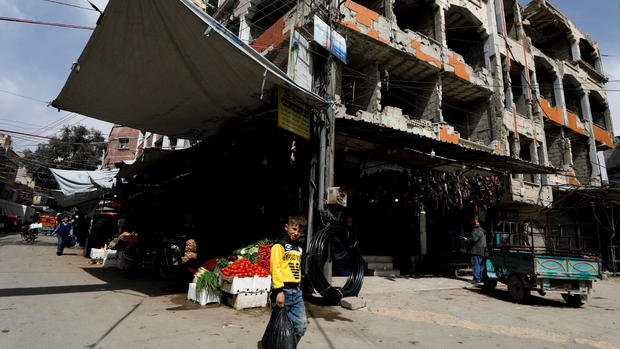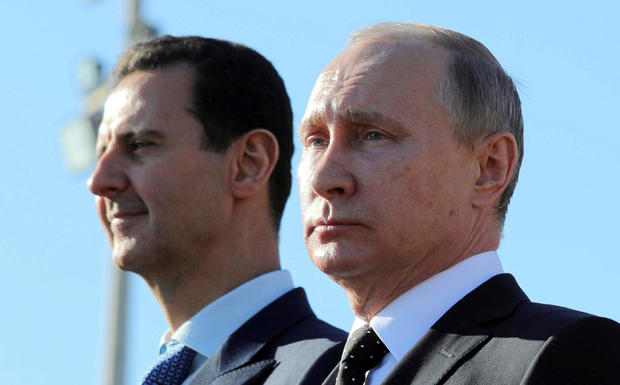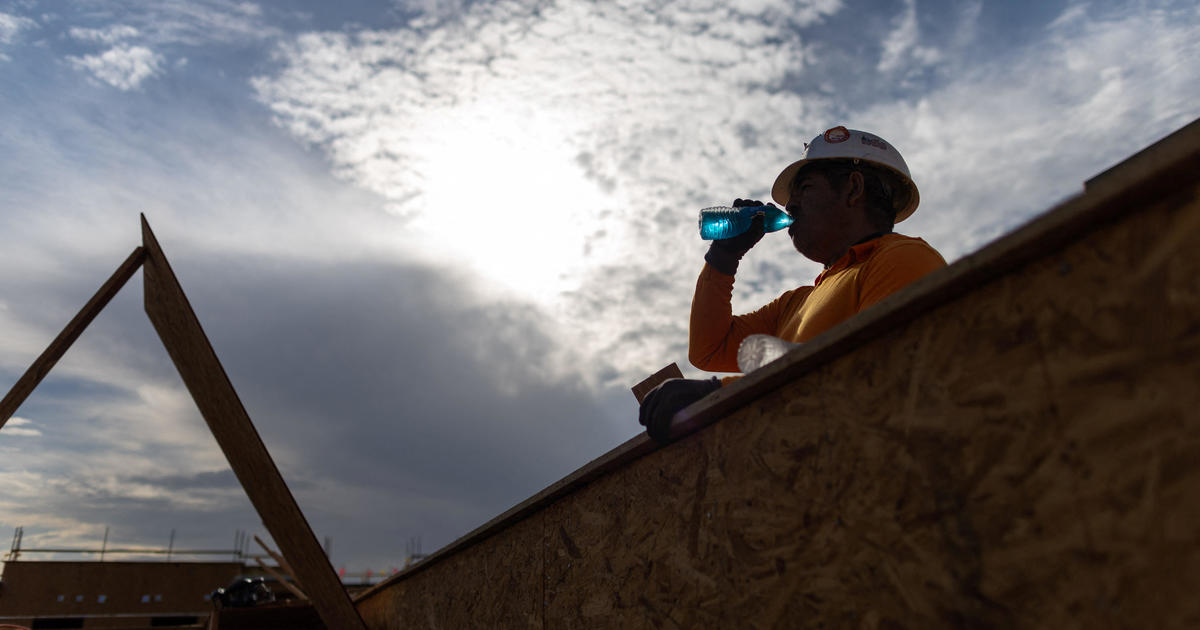Why Syria's civil war is still a "living nightmare" after 10 years
Damascus — The civil war in Syria may no longer be headline news as the world struggles through the coronavirus pandemic, but a decade after the crisis began, Syria's people continue to suffer as much as ever, and finding a solution couldn't be more urgent.
Appalling statistics highlight the comprehensive grimness of this 10-year anniversary.
Some 12 million Syrians — half the pre-war population — have fled their homes in search of safety, many of them multiple times. More than 5.5 million have become refugees in neighboring nations, and hundreds of thousands more are scattered across 130 countries. Another 6.7 million Syrians are internally displaced — refugees in their own land.
The United Nations World Food Program (WFP) says most of the country is now living with food insecurity. More than 90% of Syria's population is surviving on less than $1 per day.
Barely a town or village in Syria has been spared from the violence which, according to U.N. estimates, has claimed 400,000 lives.
The war has left Syria's economy in tatters. Last week, Syria's currency plummeted to a record-low value of 4,040 pounds to the dollar on the black market, compared to 700 at the beginning of the year. Housing, basic food items — scarce in many areas even for those with the piles of money needed to buy them — and health care are all unattainable for millions of people.
Prolonged agony
The war started in 2011, when Syrians enraged by corruption and emboldened by a wave of "Arab Spring" protests across the region took to the streets to demand democratic accountability for their leaders. The protests started in March that year and quickly morphed into an armed insurgency, and eventually a full-blown war, with the U.S. and Europe supporting rebels aiming to topple President Bashar Assad.
With significant foreign support for the rebels, many thought Assad would only manage to cling to power for months. But the fighting dragged on for years. The rebels made significant gains, but so, too, did extremist groups. The chaos of the war allowed ISIS, al Qaeda and other terror groups to seize more than 70% of Syria's territory.
Then in September 2015, Russia jumped into the war with both feet. President Vladimir Putin sent forces to back up Assad's on the ground and warplanes to attack not only the extremist groups, but in some cases the rebels backed by the West.
For Moscow, Assad's overthrow would have been a serious blow: The old Soviet Union had at one time enjoyed real political influence across the region, with strong alliances in Egypt, Iraq, Syria, Algeria and Yemen, but Putin's Russia had only one remaining foothold in the Middle East, in Syria.
Putin saved Assad, and the Syrian president is now planning to run for a new seven-year term in June elections.
Why it's still a "living nightmare"
While Assad's regime is now back in control of most of the country, there's no end in sight to the war. Nearly a third of the country, mostly in the north, is still controlled by rebel forces, and the conflict has only become more complicated given the significant investments by foreign powers like Russia and the U.S.
What began as a simple confrontation between the government and its domestic opponents has evolved into a geopolitical quagmire. Still caught in the middle, with little cause for optimism, are the Syrian people.
"Beyond the need for stout, instant humanitarian backing, the Syrian people whose lives have been upended for years deserve genuine endeavors in the search for a fitting solution for all," Sami Ammar, a school teacher in downtown Damascus, told CBS News. "I don't think there is a more perplexing active conflict than the Syrian war. I know a solution is not easy, but world powers should do whatever they can to end the nightmare."
The United Nations Security Council has been unable to take any meaningful action to end the crisis, paralyzed by both Assad's ally Russia and China wielding veto power as permanent members. Russia has vetoed 16 Security Council Resolutions related to Syria, and it was backed by China on many of those occasions.
President Joe Biden's administration said last week that Assad had done nothing to restore his legitimacy, and it rejected any restoration of official ties with his government "anytime soon."
In a statement marking a decade of civil war, U.N. Secretary-General Antonio Guterres said last week that while Syria had fallen off front pages around the world, "the situation remains a living nightmare."
"The war should end right away," said Ibtisam Lamaá, a mother of five who lost her husband in a mortar attack in Damascus four years ago. "I need to provide my kids with better prospects - better education and a brighter future."
"It is a hard life, I know, but I am dreaming of that day when I will see my sons and daughters [become] doctors or architects," she told CBS News, her voice trembling with emotion.
Even when the war does finally end, it will take decades to repair the damage.





